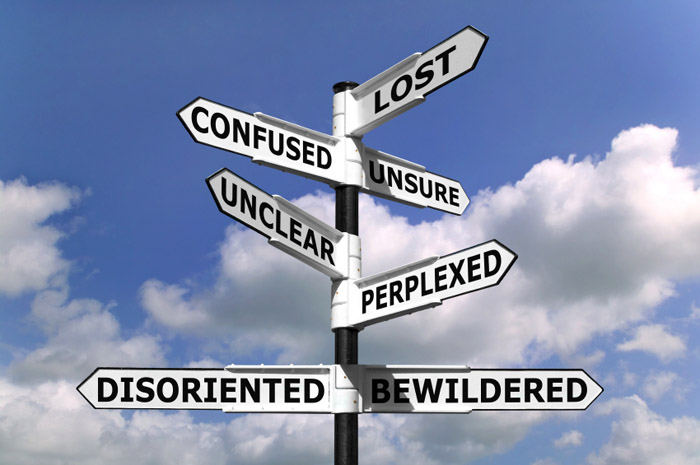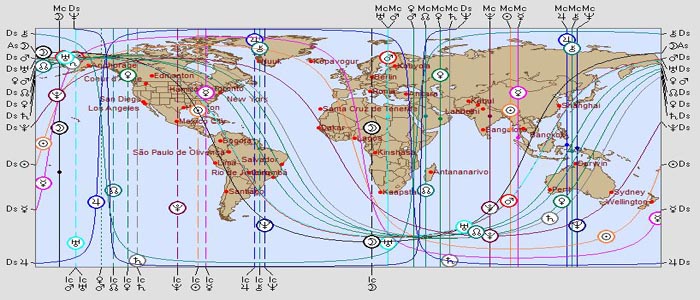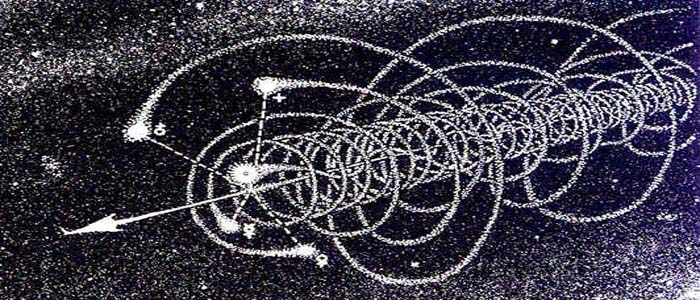Twelve Questions

About Astrology
we
don't know the answers to, but must find out...
By John
Townley, May
2013
Magazines
and newspapers (digital or otherwise) these days
are fond of making important lists, preferably ones involving
significant and
symbolic numbers: the three
deadliest
diseases lurking on the horizon, the seven
most important events of the year, the top ten
unanswered questions in modern science, the 100
most influential people on the planet, and so on. So, probing our
knowledge
(or, more important, lack of knowledge) of our own starry art, we
thought we’d
try for something similar: like, say, twelve aspects of astrology we
need to
explain, but can’t. At
first thought, it seemed that might include obscurities
like why or whether harmonic charts work, which house system is better,
or if mangliks
(in Vedic astrology) really are
cursed marriage partners.
But after a brief search for the truly
unexplained
techniques and assumptions that are in daily use, we discovered the
most
mysterious are some of the most basic pillars of astrology itself. It
might
seem that we draw our conclusions daily on a set of rules and
assumptions
which, when questioned at the simplest level, are either on shaky
ground or
have no grounded basis at all. Over the life of this website, we have
tried to
suggest some reasonable, consistent underpinning for some, but others
still
quite elude us. Here are our magic twelve (because we all like that
number,
though there are more):
  
1. Signs.
What are signs? We assume they
are twelve equal divisions of Earth’s orbit around the Sun,
but where does that
start – at the point of the spring equinox, or at the
beginning of a set of
totally un-equal
star constellations,
themselves imaginary, and varying from one culture to another? And if
you do
use tropical signs, like most, aren’t they just divisions of
the seasons? And
if they are, why aren’t they reversed for people born in the
Southern
Hemisphere (Kiwi and Down-under astrologers swear they’re
not)? Do planets whose axes aren't aligned with ours have different
Zodiasx? Do planets without tilted axes have no Zodiac at all? And,
speaking
of lists, why twelve signs/divisions to begin with, why not ten, or
seven, or
something else substantial? We’ve interestingly and importantly
addressed some
of it here,
but still no definitive conclusions, really…

2. Houses.
Speaking
of our magic twelve, what are houses, really? Certainly they are a
twelve-fold
division
of Earth’s rotation, usually with basic agreement on the division
of
straight up and
down (MC/IC) and the horizon (Asc/Des) but over a dozen different ways
of
generating what’s in-between. Let us count the ways:
Placidus,
Koch, Campanus, Regiomantanus, Alcabitius,
Krusinski, porphyry, neo-porphyry, equal, whole sign, meridian,
and topocentric
being just the most popular. And
why do
they mean what they do? Is the fourth house about fundamentals and
roots
because it’s at the bottom, because of gravity? And why is the
most open and
beneficial house (the first) right next door to the most hidden and
troublesome
(twelfth) and just where do they shift and how? Gauquelin sectors
suggest
something totally different than traditional assignments (well inside
the twelfth house), though there
may be another
reason for that…

3. Planets.
Planets
are the meat and potatoes of astrology, but are they what’s
actually in the
sky, or just archetypal ideas associated with their mythology or their
varying
cycle periods? Do they directly affect us (and if so, is it
gravitational,
or magnetic, or spiritual, etc.) or do they just affect Earth and
through it, us, with
gravitational
oscillation and overtones that are locked
into Earth’s resonant system,
and subsequently ours?? Is it about one-on-one
effects or general synchronous movement in the environment above and
below? What, of the many possibilities, is the physical
basis of it all?
 
4. Aspects.
Aspects,
hard and soft, tell the story of chart dynamics. But aside from simple
measured
angles, what are they, and why do divisions based on two (opposition,
square,
semi-square, etc.) seem difficult and those based on three (trine,
sextile)
seem supportive? Is the basis as profoundly simple as gravitational Lagrange points?
And how about the
non-Ptolemaic aspects based on numbers not part of our
mysteriously-favored
twelvefold division, like quintiles, septiles, or other
primes like eleven, thirteen, or seventeen…or perhaps
non-whole-integers like phi, pi, or other constants? Are aspects
more
fundamentally numerological, about Platonic one-ness, two-ness,
three-ness, and so
on, or
are they simply physical and gravitational/magnetic contacts, or both?
And regardless,
are
aspects just ways of measuring something else, like overtone sets of
fundamental very-long-period resonances and interference patterns whose
upper partial cycles
fall into
our own life-length scale?
5. The horoscope
itself. We look at the horoscope
as the whole story of something (us, an
event, a question), but what is it really – a set of initial
conditions that
evolves a la chaos theory,
the moment of the soul’s entry (in
the case of sentient beings), an epigenetic imprint induced by birth
trauma, or an exterior key
to a behavioral
trap of repeating cycles? How
is it related to the self, or the soul, if there is such a thing?

6. Returns.
Everybody
does solar return charts (and, occasionally lunar returns), like they
meant
something. You can, and probably should, travel
for a good one. But why would
the moment of a return, solar or lunar or
whatever, mean anything? If it’s a
rebirth,
then a rebirth of what? And if a simple return works, why not an
opposition
return (solar low), or a Sun/Moon midpoint return? Some astrologers do
actually
use both, and more…

7. Relocation.
Most
astrologers are ready to admit, if only from personal experience, that
things
change when you relocate someplace else on Earth. And it seems to
correspond
with simply re-casting your chart there -- and an astrocartography map
can give you clues where to look. But why should that happen? It
doesn’t
change your birth chart. Is it about a diurnal
cycle locked-in from birth simply
time-shifted?
8. Synastry
and
relationships. It’s second nature for any astrologer to look
at two charts with
a Sun/Moon overlap and presume a naturally strong relationship or even
marriage.
But why
should that be so, why more than just two glyphs on the same piece of
paper? Do
transiting planets naturally shepherd people sharing like degree areas
together,
or by harmonics/overtone similarities, or what? Are your degrees like
the keys
you play in, so you slip into them naturally together,
playing better
with people with familiar key signatures? Are these perhaps in some way
the shared threads
in the loom of fate?

9. Progressions.
Everybody uses progressions, usually the day-for-a-year secondary kind,
but
this may be the most mysterious technique of all. Are these planetary
motions of the first
three
months of life, correspondent events of which surface spot-on years
later, a peculiar kind of infant
imprinting with delayed detonation? Or are they some sort of
fractal
resonance with
the subsequent
big picture? Or are they part of a direct, physical 4-6D architecture
that
stretches, tangentially, across an already-formed
universe?
10. Scale.
We all
know what each planet is supposed to mean in our lives. But some of
their
cycles we don’t live to see repeat or even finish (the outer
planets) and
hence we assign them to
the bigger social or evolutionary picture. So does meaning change with
scale – is
there a different
astrology symbolism for countries than humans, because they live
longer, or we live
shorter? Does, for instance, Jupiter = Sun
on a 12x scale
for nations, and are there other shifts/equivalencies according to
native longevity? Basically, is mundane the same
or very
different than human-scale natal astrology? And how about the other,
shorter-life direction? Dogs and
cats don’t
get to see even Jupiter and Saturn repeat, so are they the equivalent
of
outer
planets for our pets?
11. Horary.
Oppositely,
is the fine, diurnal scale of horary another world, or just a scale
shift?
Because you
can rectify with it,
what does that tell you about how tightly you may be locked into the
warp/woof
of the weave of fate? And does a horary actually have a life of itself,
or is
it just a
momentary example of our locking into our repeating degree areas as we
proceed
with our thoughts and actions?

12. Other time and
space scales. When you drop to
microscales where the shortest diurnal cycle
is an eternity, or up to macroscales where hundreds Pluto cycles are
the equivalent of a
momentary musical tone, are there common design elements to work with?
Are
they simply
octaves or overtones (or undertones) of the ones we know (regular
planetary/diurnal),
and how
directly are they connected (as they seem to be, especially at upper
and lower
ends of each scale set, dark vs. light, fast vs. slow, friendly vs.
threatening) or self-similar? Do the principles of astrology work out
at the
macro-cosmic
level, or down at the quantum level? Not that it really means anything
to us
personally, since we’re stuck in our own meso-scale, but are we
dealing with
universal principles here, or just local-time, seat-of-the-pants
engineering
that
may be totally different elsewhere? Speculation on that here and here…
Well,
that’s twelve — because we astrologers like twelve
– unexplained
tenets of astrology, but
there are more, though these cover virtually all of the basics we take
for
granted and stand upon in daily practice. Turns out, we’re on
really soft
ground most of the time, repeating meanings learned by rote from others
who
learned them by rote from others who…and so on down through
history. Did anyone
back there actually have their feet on the ground enough to make these
proclamations solid to begin with? Can we find our way back,
or down,
or in
enough to someday say we do? That’s a tall
order, but if there is to be any real future in astrology,
that’s what’s on the
menu…
Not
a
newsletter subscriber already? Subscribe Free
Here!
And
every day, keep in touch with our Astrology In The News section...please
take a look! --
Breaking news from
around the globe, plus articles, reviews, it's all happening there,
changes daily...
|
|
|

